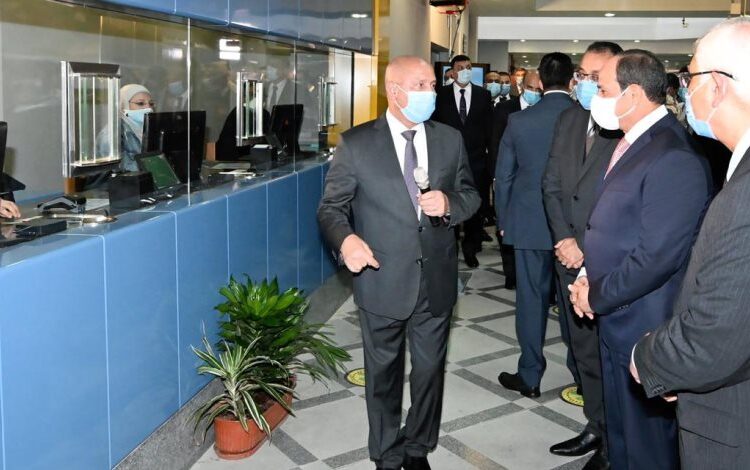Egypt’s Minister of Transport, Kamel al-Wazir, said on Sunday that the Adly Mansour Station, the largest transfer station in the region, was established within the framework of a plan to overhaul Egypt’s transport sector.
He added during the opening of the station in the presence of President Abdel Fattah El Sisi, Prime Minister Moustafa Madbouli and a host of Cabinet ministers that the plan aims to turn public transport in Greater Cairo into an environment-friendly one.
This concept, the minister said, is manifested in the way the Adly Mansour Station is constructed and would operate.
He added that the station brings together seven different means of transport.
The minster noted that his ministry had sent its experts everywhere around the world, including to France, to study how central and transfer stations are constructed and operated.
Four of the means of transport connecting the Adly Mansour station are electric ones, the minister said.
He added that these means of transport include the Cairo-Suez railway line, the 3rd line of the underground metro, the light electric train, alongside the Super Jet bus station, electric bus, the bus rapid transit.
Minister al-Wazir said the 3rd metro line starts from Adly Mansour station and passes by Rod al-Farag Axis and Cairo University, travelling 42 kilometres and containing 34 stations.
This line, the minister said, would offer services to up to 1.5 million commuters every day.
He noted that the 1st phase of the 3rd line starts from Ataba to Abbasyia, while the first part of the 3rd phase covers 17 kilometres and includes 15 stations.
He said this part of the phase starts in Ataba and ends in Kit Kat.
He described this part of the 3rd phase of the line as a transverse artery’ that covers an important trade area.
Minister al-Wazir said his ministry was ready to start the experimental operation of the Safaa Hegazy metro station on the 3rd line.
The minister revealed that Egyptian companies are now working on the fourth metro line in collaboration with a Japanese consultation office and the Japan International Co-operation Agency.
He noted that Egypt is now the only country in Africa and the Middle East to have electric mass transport lines, covering 500 kilometres and are eco-friendly.






Discussion about this post